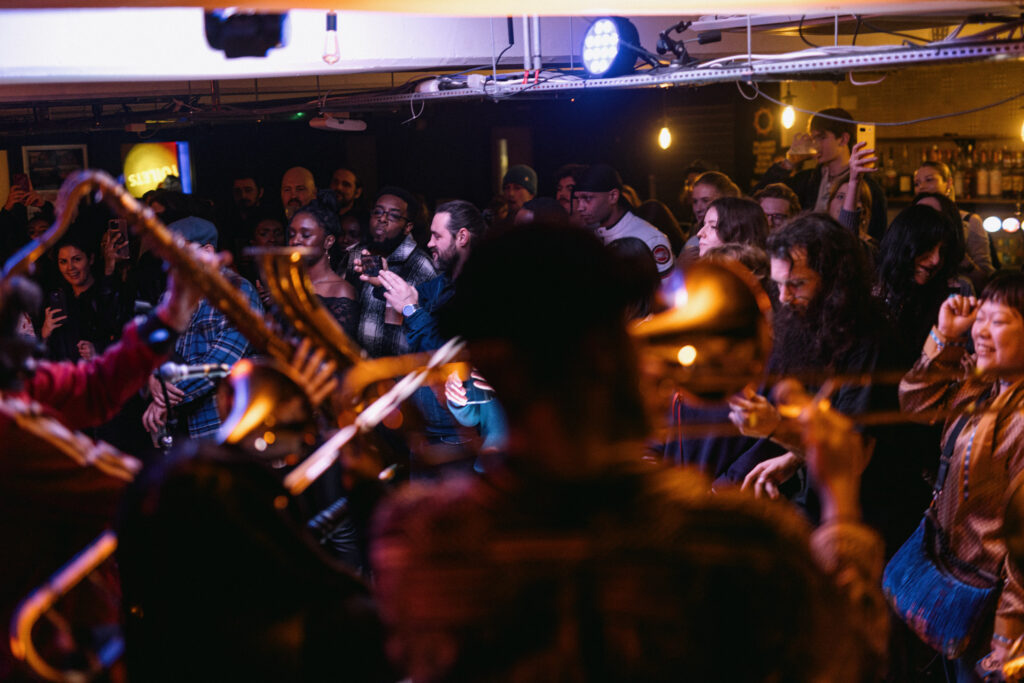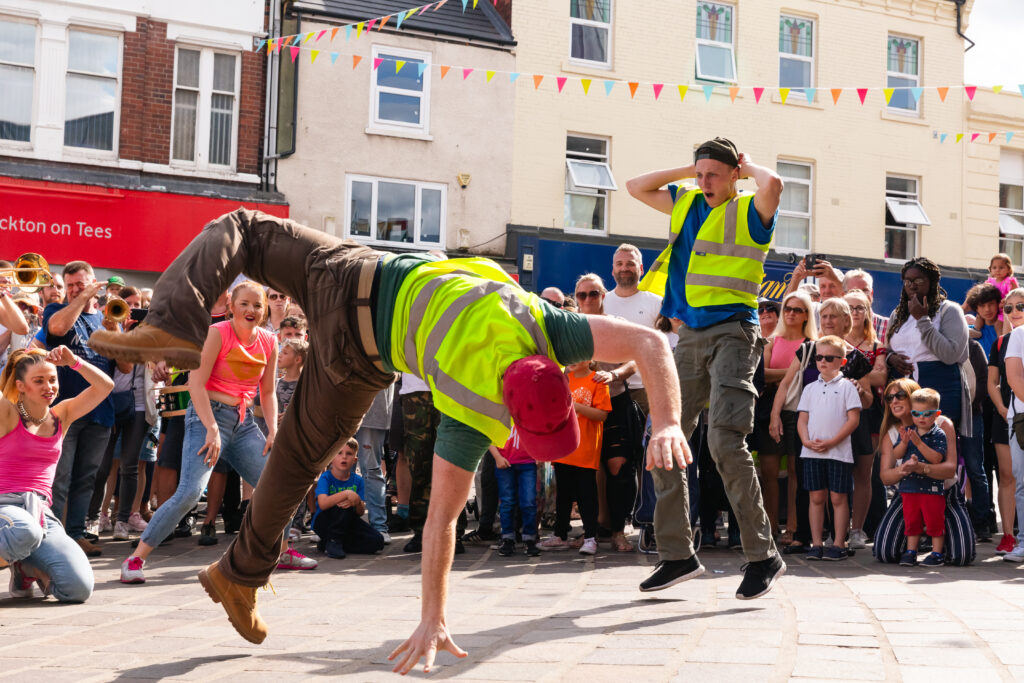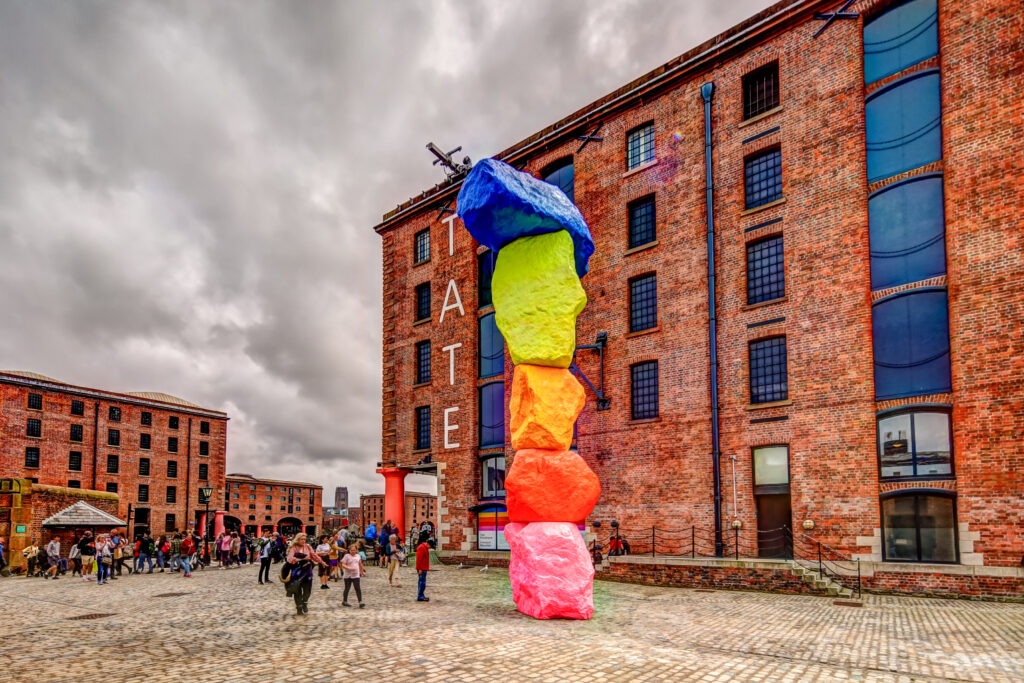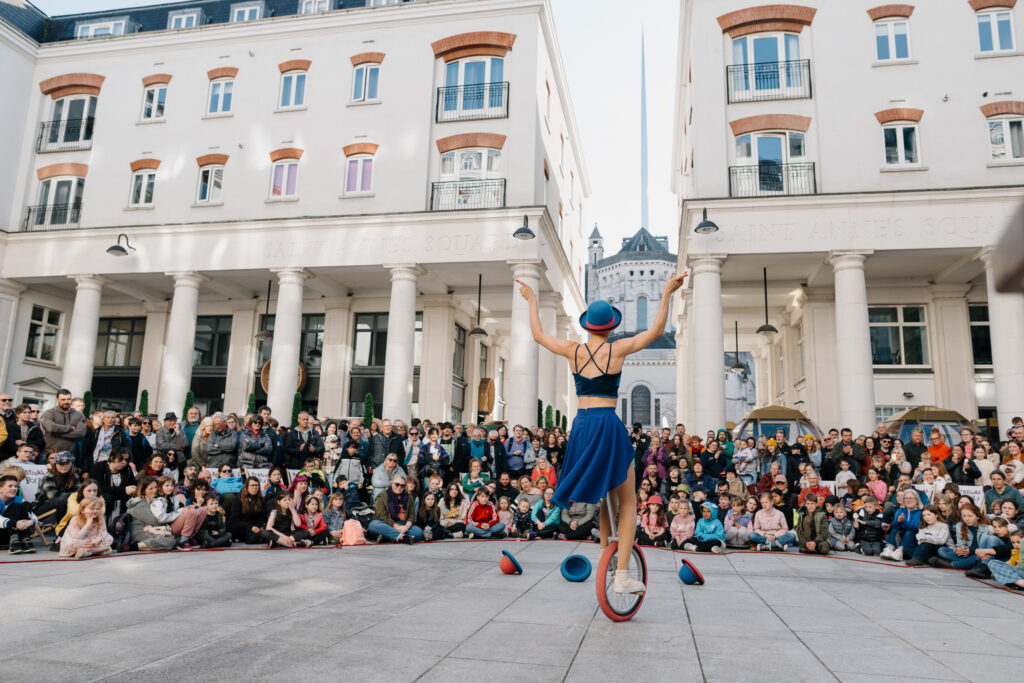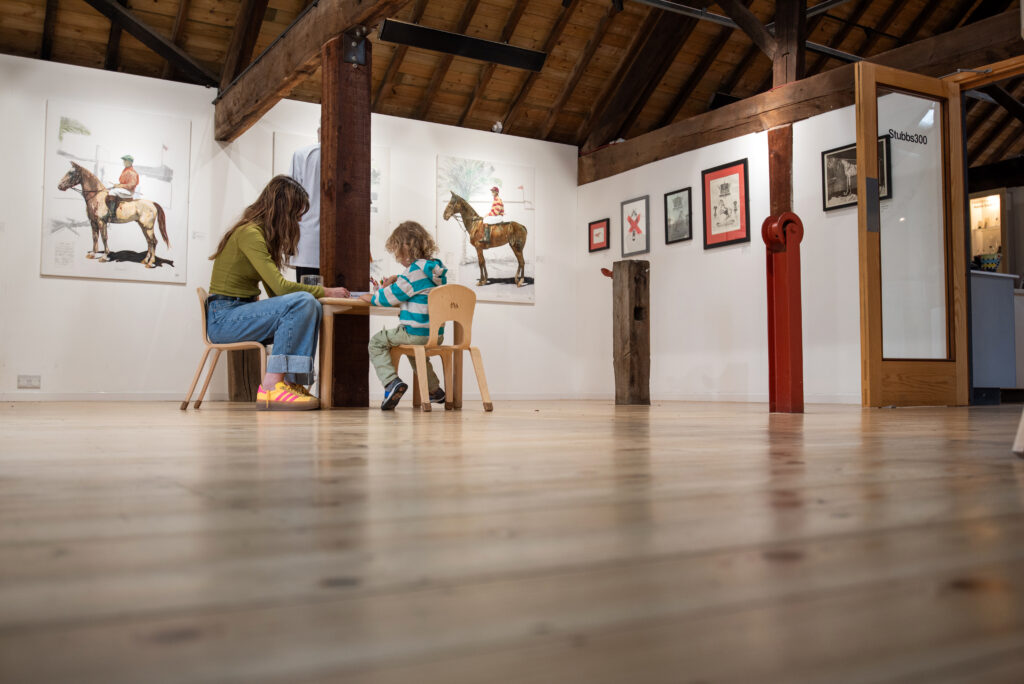Rachel Reeves – make the arts part of UK National Renewal 📈
The Chancellor is currently reviewing all public spending from scratch. Let's remind the UK Government:
The arts make our lives happier and our communities stronger. Now is the moment to invest in them.
This Labour Government was elected on the promise of a decade of national renewal. By the end of her Spending Review on 11 June, the Chancellor will have decided whether the arts are part of the picture: whether to continue to shrink arts and culture funding until 2029, or whether to turn the tide.
The arts are not a luxury, but an essential ingredient in a healthy society. For us to thrive, the arts must too.
However, the UK has one of the lowest levels of government spending on culture among European nations.1 Cuts are continuing under this government: the Department for Culture, Media & Sport (DCMS) budget has already shrunk by 6% this year.
This Spending Review is about our longer-term prosperity. Now is the time to remind the Chancellor: cuts to culture are cuts to our collective potential; investment in the arts is an investment in us all.
Investing in the arts and culture will catalyse a decade of national renewal. This Spending Review, we urge the Chancellor to:
🛟 Restore the funding removed from the DCMS budget this year by 2026–27.
🌻 Sustain real-terms growth in DCMS budgets in each year of the Spending Review period, as is planned for overall departmental spending.
🤸 Extend the Government’s commitment to growing funding for schools and local councils, both of which are vital for public access to the arts.
For us to thrive, the arts must too
The arts are not a luxury, a sweetener, or an optional nice-to-have that we should only look to once all else is sorted. Engaging with the arts promotes the essential habits of a healthy society, from curiosity and confidence to empathy and the art of living with difference.2 This means happier individuals, better relationships, and stronger communities.
To ensure access that is local, regular, and available at all stages of life, we need artists, venues, and organisations, and a robust and rounded system to support them: a thriving cultural ecology.3
The health of an ecology depends on the balance of its parts. Public investment is not the full picture, but remains an essential partner to commercial and do-it-yourself art-making. We must not let it wither away.
The government is now spending almost a third less per citizen on the Department for Culture, Media & Sport compared with 2010:
This erosion threatens the cultural organisations that rely on DCMS funding:
Our new government is growing spending overall, but cutting Culture, Media & Sport:
Cuts like these are a false economy that will ultimately cost us more in the long-run. Engaging with culture and heritage makes people happier and healthier — less in need of healthcare services and more productive at work. A recent report estimated the value of these benefits at over £8bn each year to the UK — 350% of DCMS’s current budget.4“Scientific research is increasingly demonstrating that the arts are a fundamental health behaviour, just like physical activity, diet and sleep.” — Professor Daisy Fancourt, University College LondonAt the Campaign for the Arts, we are not surprised by findings like these. We know that joined-up thinking in public policy works. Including cultural investment in holistic solutions to complex problems is effective, evidenced, and reliably creates value for everyone, everywhere. There is so much at risk if current levels of cultural funding continue to shrink. But imagine the renewal we could witness if they begin to grow.
Investing in the arts and culture will catalyse a decade of national renewal. This Spending Review, we urge the Chancellor to:
🛟 Restore the funding removed from the DCMS budget this year by 2026–27.
🌻 Sustain real-terms growth in DCMS budgets in each year of the Spending Review period, as is planned for overall departmental spending.
🤸 Extend the Government’s commitment to growing funding for schools and local councils, both of which are vital for public access to the arts.
FAQs:
What is a spending review?
A Spending Review is the process by which the UK Government sets out public spending plans for government departments. This Spending Review will be what’s called a “zero-based” review, meaning that every budget line across all departments will be reviewed from scratch in order to arrive at each Departmental Expenditure Limit (DEL). DELs are split into:
- Day-to-day resource spending limits (RDELs). For DCMS, resource spending includes core funding for Arts Council England (ACE), the British Film Institute (BFI) and national cultural institutions.
- Capital spending limits (CDELs). For DCMS, capital spending includes the recently-announced extensions to the Libraries Improvement Fund (LIF) and Museum Estate and Development Fund (MEND).
The 2024 Autumn Budget set DELs up to 2025-26. This June’s Spending Review will set DCMS’s RDEL, or day-to-day departmental budget, for the following three years, taking us to April 2029, and its CDEL, or capital departmental budget, until April 2030.
Why have you chosen these demands?
The Department for Culture, Media & Sport (DCMS) is the largest public funder of the arts in the UK Government. It directly funds 15 national museums and galleries, heritage and collection organisations Historic England and the British Library, and development agencies the British Film Institute and Arts Council England (which in turn administers core funds to nearly 1,000 further organisations via its National Portfolio).
But DCMS is not the only area of government spending which impacts on the arts ecology. Arts Council England also administers funds on behalf of the Department for Education (DfE) to Music Hubs, and the DfE itself oversees arts education in schools. On aggregate, local authorities are an even larger public funder of culture, heritage and libraries than DCMS (even though their spending in this area has halved since 2010 amidst incredibly tight budgetary pressures). Local authorities receive central government grants from the Ministry of Housing, Communities and Local Government (MHCLG).
We welcomed news at the Chancellor’s recent Autumn Budget and Spring Statement of some increased investment in local authorities and to a lesser extent in education — but we were disappointed to see continued cuts to DCMS. We urge the Chancellor to make use of the direct lever at her disposal by restoring and sustaining funding to DCMS and extending these commitments to DfE and Local Government, for the benefit of us all.
Does this affect me in Wales, Scotland, or Northern Ireland?
- Increased cultural investment in any one part of the UK sets a precedent for the others and encourages a race to the top. The Scottish Government has just increased its cultural spending by 14%, after a campaign involving thousands of our supporters. If Rachel Reeves now takes a long-term, joined-up approach to our national prosperity by investing in the arts and culture in this Spending Review, momentum will only multiply.
- Ecologies never exist in a vacuum, and arts ecologies are no different. The arts in each nation are interconnected and interdependent: regional English concert halls platform new Scottish concerti written for world-famous Scottish violinists; English opera companies are led by artistic directors who cut their teeth at Welsh National Opera and were first inspired by parents singing with Opera Northern Ireland; and bassists from Pontygwaith win BBC Young Jazz Musician after relying on grassroots touring circuits across England and Wales.5
- The Campaign for the Arts is a people-powered, UK-wide alliance. It works by joining together people across the country who all believe in the transformative power of the arts on individuals and society and the vital importance of their championing and support. This petition is a small part of a bigger movement in which we can all play a part.
How do I join the Campaign for the Arts?
The Campaign for the Arts is the UK-wide alliance for the arts. We already represent a quarter of a million people who have shown their support for our cause: to champion, defend and expand access to the arts and culture, for and with the public.
Joining is free of charge. In return, we promise to keep you informed of issues affecting the arts ecology in the UK and provide ways to take effective action in its support, both in nationwide matters (like this petition) and targeted ones tailored to your postcode (like our successful intervention into the Scottish Government’s 2025-26 budget).
We are objective, non-profit and non-partisan. We will always advocate for the arts, and never for any particular party or candidate. We welcome supporters from across the political spectrum who share in our vision of a society in which the benefits of the arts and culture are valued and available to all, and everyone’s creative potential is unlocked.
Join by selecting ‘yes’ when prompted as you sign the petition, or by clicking here.
